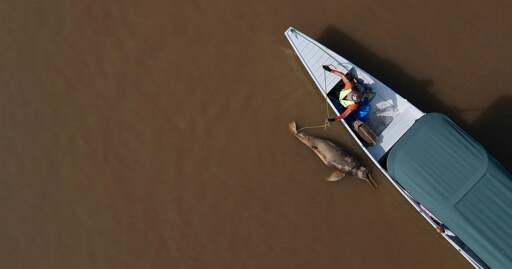When dolphins began washing up dead by the dozens on Lake Tefe in Brazil’s Amazonas state, hydrologist Ayan Fleischmann was sent to find out why.
What he and his colleagues discovered was startling: a brutal drought and extreme heat wave that began in September 2023 had transformed the lake into a steaming cauldron. The lake’s waters reached 41 degrees Celsius, or 105.8 degrees Fahrenheit — hotter than most spa baths.
Their findings, published Thursday in the journal Science, spotlight the impacts of planetary warming on tropical regions and aquatic ecosystems, and come as the United Nations’ COP30 climate talks kick off in Brazil.



This is my first time hearing that dolphins reside in lakes. Natural inlet.
Basically, this time, they swam right into a boiling pot.
We are so royally fucked.
I vacationed one year in Ecuador/Galapagos and spent a few days at a an amazon river lodge and they have pink dolphins. They’re pretty cute/small!
Lived in the Mississippi bayou and in drought conditions ocean water backs up into the lakes and wetlands. I swam with dolphins 30 miles north of the coast some summers.
was you born on the bayou? Is mississippi as big a shithole as it seems?
There are river dolphins, even.